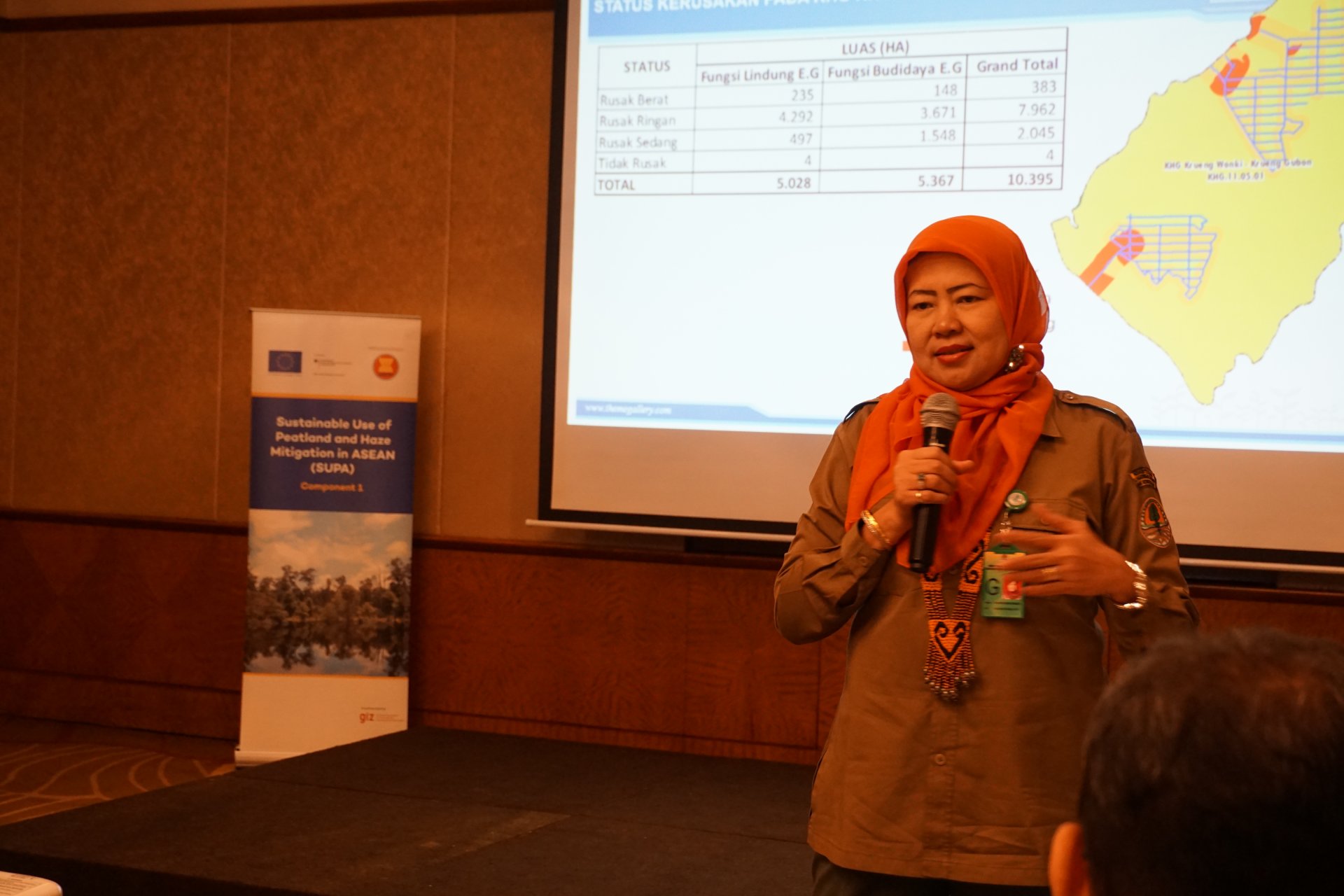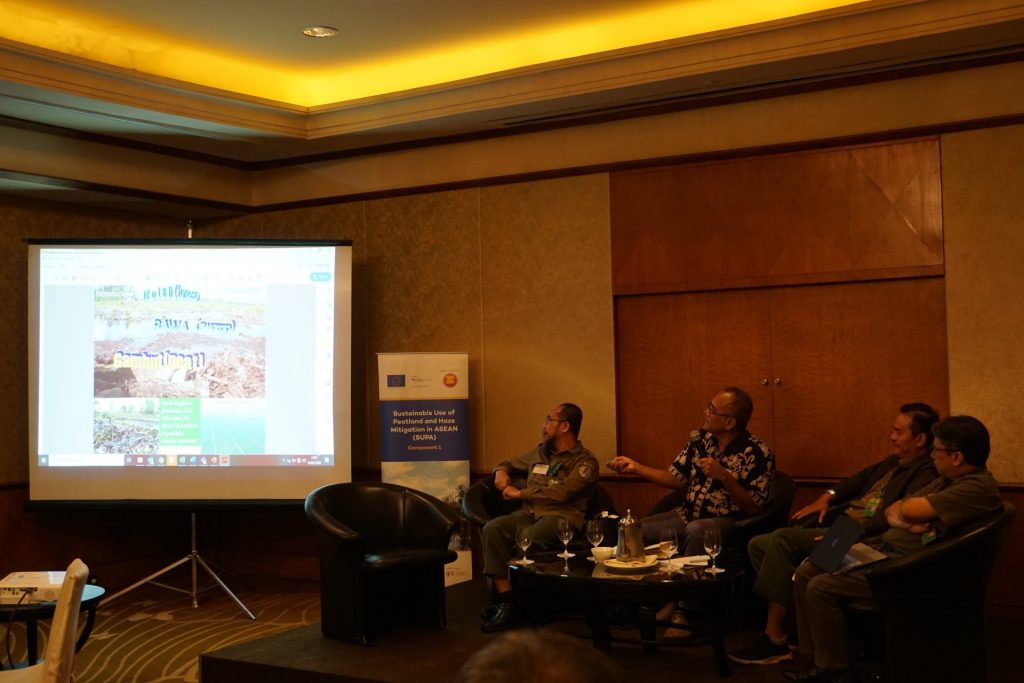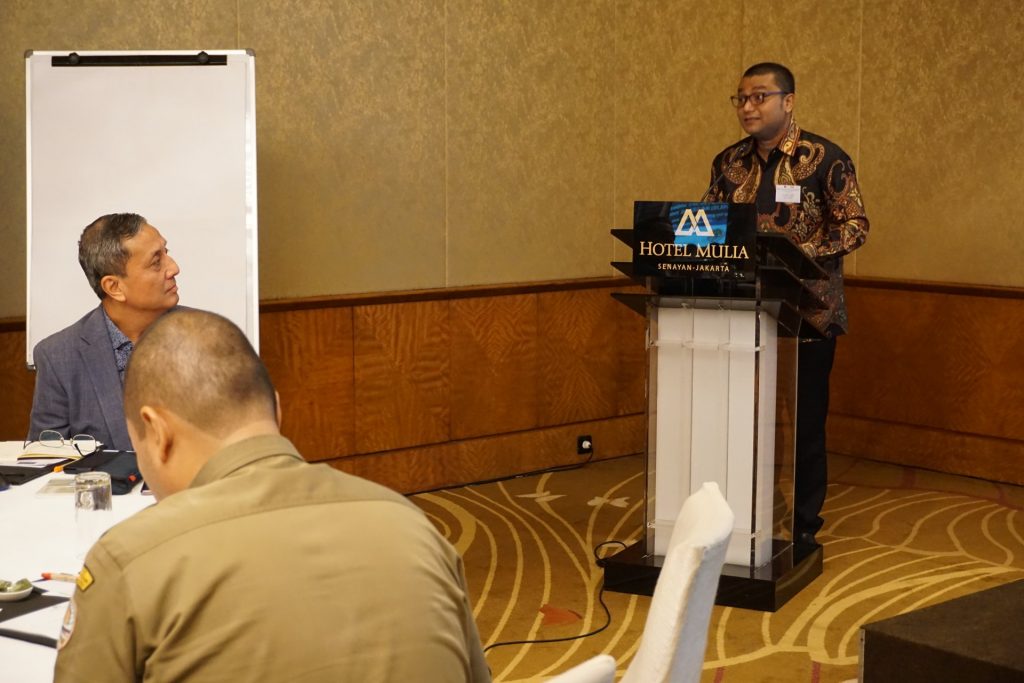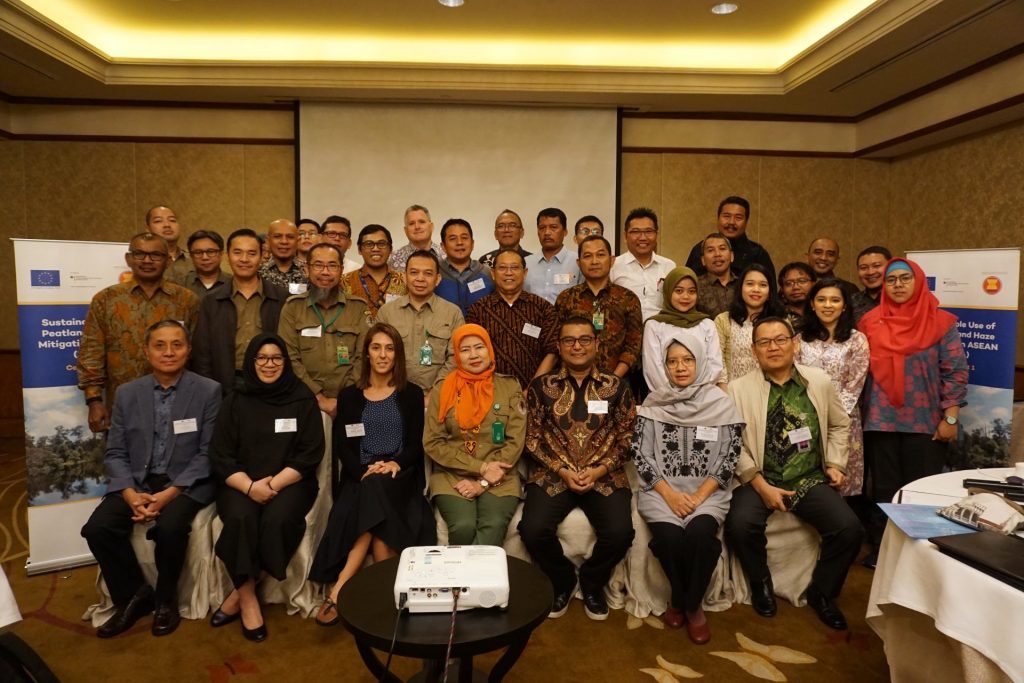February 4, 2020
Location: Indonesia

Sustainable Use of Peatland and Haze Mitigation in ASEAN (SUPA) Component 1 and Directorate of Peat Degradation Control (DPKG) of the Ministry of Environment and Forestry of the Republic of Indonesia (KLHK) held the launching of SUPA’s Pilot Site in Indonesia on 4th February 2020 in Jakarta.

During the workshop, KLHK announced that the pilot site of SUPA Component 1 in Indonesia will be located in the Aceh Province. There are 3 peat areas in Aceh namely Tripa, Singkil and Kluet. Pilot villages will be selected based on the National Medium-term Planning (RPJMN), taking into considerations criteria like status of the land (preferably land should have a clear ownership status and the limits should be clearly delineated), the willingness of local stakeholders to get involved, as well as lessons learnt from sites that have high potential for upscaling.
In the opening remarks, the Director of Peat Degradation Control SPM Budi Susanti thanked EU and BMU for the continued support to Indonesia, especially in peat management. She also hoped that SUPA can help contribute further evidence towards effective and efficient approaches in protecting and managing peatlands in Indonesia.

Meanwhile, on 12th February 2020, Sustainable Use of Peatland and Haze Mitigation in ASEAN (SUPA) Component 1 and the Biodiversity and Forestry Management Division of Ministry of Water, Land and Natural Resources (KATS) of Malaysia organised “Workshop on Generating Pilot Experience in Malaysia” in Putrajaya.

During the workshop, participants discussed the current status and condition of peatlands and how they are managed in Malaysia; shared practical experiences on sustainable use of peatland and fire management; discussed a set of criteria for selecting the pilot site; and identified potential sites within Pahang, Selangor and Sarawak which fit to the selection criteria of the pilot site. KATS collected all the pilot site proposals and arguments, and will present them to the Jawatankuasa Induk Tanah Gambut Malaysia (National Peatland Steering Committee) for the final decision on the selected pilot site. The pilot project aspires to demonstrate how a peatland, within the landscape or peatland hydrological unit, can be restored and/or rehabilitated through sustainable peatland management options.
Share this
